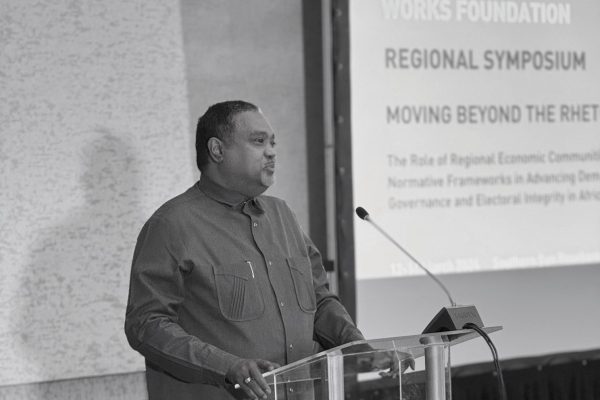The state is so compromised that it might be unable to lead problem-solving at SA universities.
Last week advocate Nomgccoba Jiba, deputy national director of Public Prosecutions, head of the Special Commercial Crimes Unit advocate Lawrence Mrwebi and Hawks head Berning Ntlemeza appeared before Parliament’s public accounts committee. As they spoke about the state’s capacity to fight corruption, their words were lost in a haze for the trio represented something akin to a Rogue’s Gallery.
In the same week, the Pretoria High Court ordered that both Jiba and Mrwebi be scrapped from the roll of advocates. Jiba specifically has been accused of blocking any attempts to charge President Zuma with corruption and fraud. She was instrumental in protecting former head of crime intelligence Richard Mdluli from prosecution and relentlessly pursued KwaZulu-Natal’s Hawks head Johan Booysen, who was investigating Thoshan Panday, a close Zuma associate and businessman.
Judge Francis Legodi found both Mrwebi and Jiba ‘unfit’ to serve in their positions. He had some choice words for both of them. As for Ntlemeza, the North Gauteng High Court found him to be unfit to hold his position. In fact, Justice Matonjane said Ntlemeza was “biased, dishonest and lacks integrity and honour” and found that he made false statements under oath.
While the details are important, the over-arching narrative is the same. The president needs to be protected at all costs. As his term nears its end and as the ANC’s own elective conference looms in 2017, Zuma has become a man desperate to protect himself from criminal prosecution. To achieve that goal, he needs to appoint the likes of Jiba, Mrwebi, Ntlemeza and NPA head Shaun Abrahams (who promoted Jiba in a restructuring of the NPA) to do his bidding.
We have seen that in pursuit of the goal Zuma is perfectly prepared to undermine institutions of democracy. Nkandla, the appointment of SABC COO Hlaudi Motsoeneng, chair of the SAA board Dudu Miyeni, the firing of Finance Ninister Nhlanhla Nene and the Hawks’ hounding of current Finance Minister Pravin Gordhan are all part of this predictable but dangerous narrative. Public Protector Thuli Madonsela dug her heels in and finally there was some accountability regarding Nkandla, but not before Parliament and the courts were dragged into the unholy mess of corruption.
And so in this environment it is hard for Zuma to lead with any form of legitimacy while his Cabinet wafts between those trying to do the right thing and those who simply do their own thing (Minister Zwane would be a case in point here). South Africans simply have no more faith that he and his band of corrupt sidekicks have the interests of the country at heart. Impunity thus seeps into the very heart of society.
This week Minister of Higher Education finally intervened on the issue of university fee increases for 2017. He did so against the backdrop of a near countrywide shutdown of universities and continuing protests often marred by intolerance and violence.
Nzimande made a reasonable suggestion, which is worth engaging with. Universities would set their own fee increases capped at 8%, but those in the ‘missing middle’ and the poor would be spared the increases. He had barely finished speaking when some student groups rejected the proposal. Essentially the immediate demand is free tertiary education for all, now.
It is very difficult to figure out how government might be able to accede to such a request immediately. Even in developed countries that are far wealthier than South Africa and with few of the intractable social challenges we have, university tuition is seldom free. One senses that a bigger conversation needs to happen as regards what kind of tertiary options young South Africans have and also what funding models should exist. This, by its very nature is a complex discussion and will not, with the best will in the world, be solved overnight.
There have been calls from some to call a cross-sectoral summit to deal with the issue of tertiary education once and for all. This would need to include academics, student bodies, trade unions, civil society, the state and business. However, for this to happen there have to be certain ‘ground rules’ of engagement, such as a cessation of violence and intimidation as well as an understanding that in any negotiation, there are no outright winners. But is the political temperature right for this, and who will lead it?
The protests continue while ANC secretary-general Gwede Mantashe has suggested a rather more heavy-handed approach of shutting the universities down. Quite where the solution lies is hard to tell in this climate, but what is clear is that the state is so very compromised that it might be unable to lead the process of problem-solving given its own excesses and severe lapses in accountability.
*This article was published in Daily Maverick. To view the article on their website click here.








